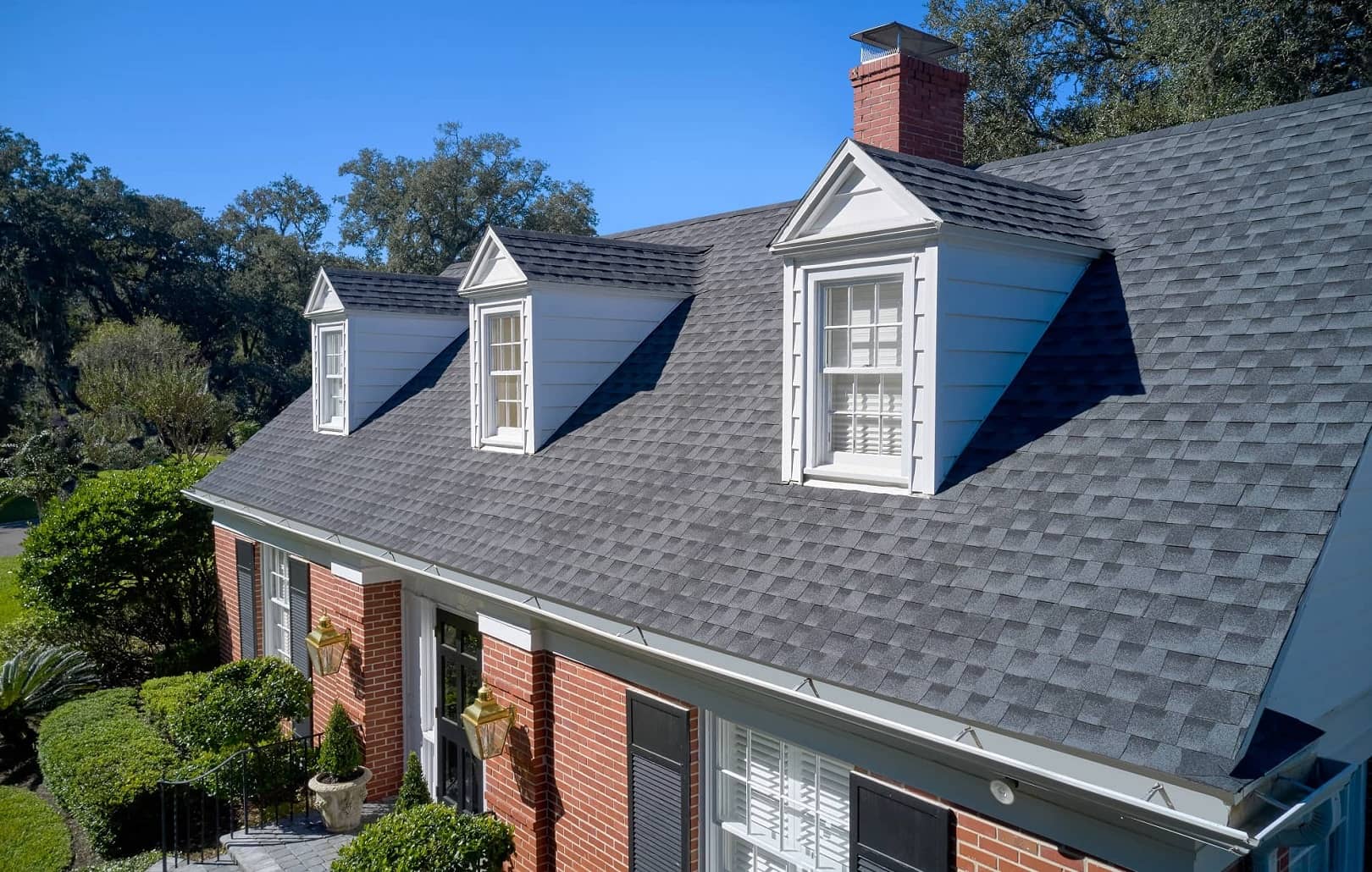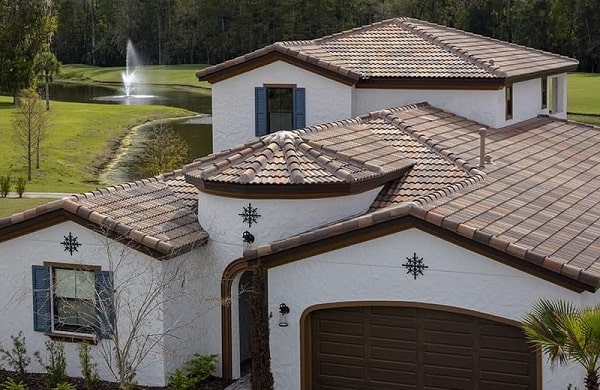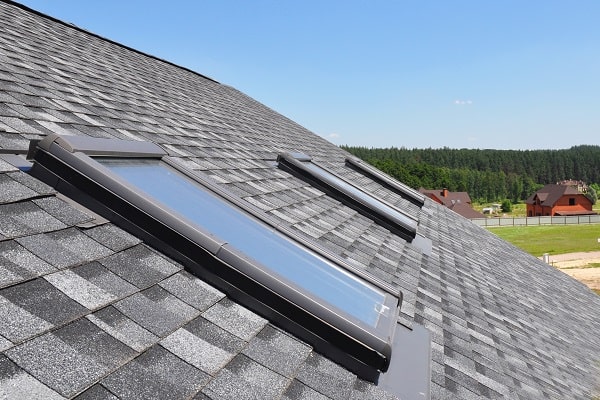Is a New Roof a Capital Improvement?
Navigating roofing costs for tax season? Learn if your new roof counts as a capital improvement with Affordable Roofing...

Home improvement projects often feel like stepping into a maze of questions and decisions. And one of these questions is, "Is a new roof a capital improvement?"
Join us in this blog as we tackle the financial side of getting a new roof. We'll unravel the complexities and explain why recognizing the difference matters to make your decision-making process simpler.
Contact Affordable Roofing Systems for a free estimate.
What Is a Capital Expense?
According to the Internal Revenue Service (IRS), a capital expense, also known as a capital expenditure (CapEx) refers to a substantial, long-term investment that adds value to a property, increases its lifespan, or enhances its capabilities. Unlike day-to-day operational expenses, capital expenses are not fully deducted in the year they occur; instead, they are typically spread out over several years through a process known as depreciation.
What Is an Expense Cost?
Expense roofing costs are the day-to-day operational expenditures incurred in the routine maintenance and upkeep of a property. They are generally shorter-term and are fully deducted in the year they occur.
Is a Roof Replacement a Capital Expense?
A roof replacement typically qualifies as a capital expense due to its substantial financial investment and long-term enhancement of the property. This means that not only does it provide immediate functionality of the building but it also extends its lifespan and durability. Additionally, a well-maintained and up-to-date roof adds significant value to the property. This increase in value aligns with the criteria of capital expenditures, as it contributes to the property's overall worth over an extended period.
Why Does It Matter Whether It’s a Capital Improvement Project or Not?
For property owners, understanding the distinction between capital expenses and regular roof repair costs is essential for several reasons:
It significantly influences financial planning, allowing for potential tax advantages with long-term benefits for capital improvements.
The distinction aids in effective budget allocation, especially considering the substantial upfront investment often required for capital improvements compared to routine maintenance expenses.
Capital improvements positively impact property valuation, a key factor for future sales or refinancing.
Understanding a project's nature guides decision-making for future endeavors, ensuring alignment with long-term goals.

When Is Roof Work Considered a Capital Improvement?
Determining whether roof work qualifies as a capital improvement involves careful consideration of various factors.
1. Reason for Replacements
One of the factors that helps determine if a roof work performed is a capital improvement is whether the replacement was necessary or not. If the roof replacement is a result of sudden incidents, it may not qualify as a capital improvement, and the cost might not be tax-deductible. However, if the work is necessitated by the natural lifespan of roofing materials, it is more likely to be considered a capital improvement. Understanding the lifespan of different roofing materials might help property owners in making informed decisions.
Steep Roof Lifespan
Asphalt Shingles 15-30 years: Affordable and widely used as steep pitch roofing covers, asphalt shingles offer moderate durability, making them a common choice for residential roofing.
Wood Shakes: 30-50 years: Known for their natural aesthetic, wood shakes provide an extended lifespan and excellent insulation properties.
Metal 50+ years: Durable and weather-resistant, metal roof systems offer a long lifespan and are known for their energy efficiency.
Tile 50+ years: Concrete tile roofing is known for its distinct appearance and exceptional durability.
Natural Stone 50+ years: Offering a timeless and elegant look, natural stone roofing is durable and resistant to various environmental factors.
Synthetic 30-50+ years: Mimicking the appearance of traditional materials, synthetic roofing combines aesthetics with durability.
Low Pitch Roof Lifespan
Build-up 10-15 years: Comprising layers of asphalt and reinforcing fabrics, built-up roof membranes are cost-effective but have a shorter lifespan.
Modified Bitumen 12-20 years: Modified bitumen sheet membranes provide enhanced durability and weather resistance.
Synthetic Rubber 25-30 years: Known for its flexibility and resistance to extreme temperatures, synthetic rubber membranes are durable and low-maintenance.
Spray-applied Coatings 20-50 years: Applied as a liquid, these coatings provide seamless protection, extending the roof's lifespan.
Metal 30-45 years: Metal panel roof systems as low pitch roofing covers, offer durability and a modern aesthetic.
Spray Foam 50+ years: Applied as a liquid that expands into foam, this roofing material provides excellent insulation and durability.
2. Wear and Tear Roof Repair
Maintenance repairs for an aging roof's functionality are generally not considered a capital improvement and may not provide tax-deductible advantages.
3. Roof Enlargement
If the roof work involves enlarging the existing building structure, such as adding new sections or increasing the overall square footage of the roof, it is likely to be classified as a capital improvement. Enlarging the roof generally enhances the property's value and functionality, meeting the criteria for capital improvements.
4. How Much Work Was Done?
Replacement of parts may not be a significant expense, but for tax purposes, repairs covering over 40% of the roof surface are subject to capitalization standards.

FAQs About Roof Replacement
Here are common questions addressing the distinction between capital improvements and routine repairs:
How do I know if my projects are capital improvements or just regular repair?
Determining the nature of your project involves assessing its scope and impact. If the work significantly enhances the property's overall value, functionality, or extends its lifespan, it may lean towards being a capital improvement. Routine repairs, on the other hand, typically focus on maintaining existing structures without substantial enhancements.
What is the difference between a capital improvement and a repair?
Capital improvements involve substantial investments that contribute to long-term enhancements, often increasing the property's value. Repairs, however, address immediate issues and aim to maintain the property's current state without bringing significant improvement.
Need Roofing Assistance?
For your roofing needs, trust Affordable Roofing Systems, your local roofing experts. Call (813) 542 8462 or complete our online form for a free estimate. Make informed decisions about your property, starting with a reliable roofing partner!
